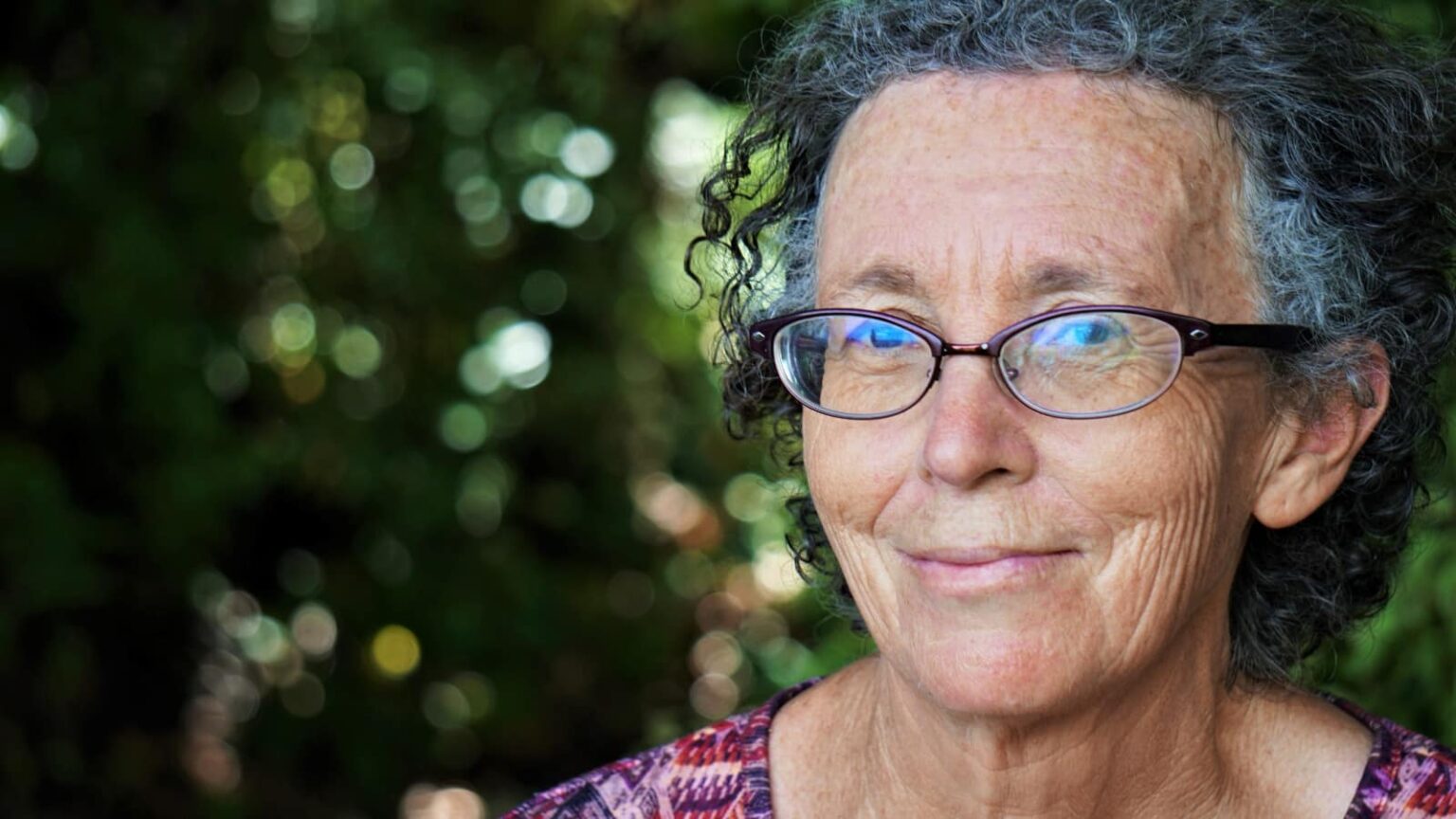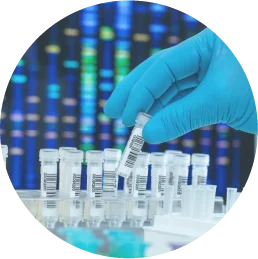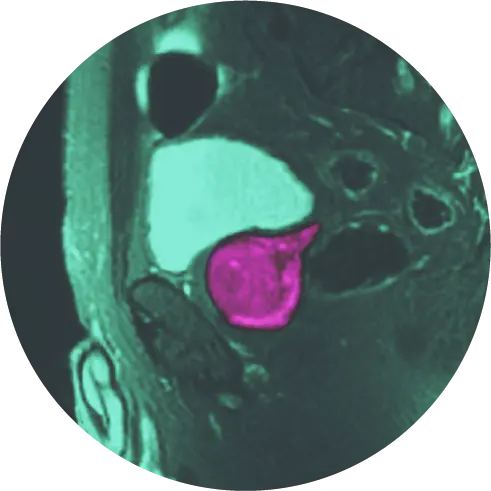Statistics show that breast cancer remains the single most common cancer globally and in the United States. In fact, more than 10% of American women will be diagnosed with breast cancer during their lifetime.1 As a result, this means that many women will undergo breast biopsies and other diagnostic testing at some point.
At HALO Diagnostics, we ensure that our patients have all the information they need to navigate the diagnosis process successfully. We use technology to make our diagnostic decisions, but we believe that ultimately, people and information shape the process.
When people are informed, they can make better decisions and improve their health outcomes. For instance, the American Cancer Society states that when breast cancer is detected early, and it’s localized, the 5-year survival rate is 99%.2 Given that a breast biopsy is one method doctors use to test for cancer and can aid in early detection, we want to help you learn all about it.
What Is a Breast Cancer Biopsy?
The first step in detecting breast cancer is almost always a mammogram, which is a breast X-ray. After you turn 40, it’s recommended that you get a mammogram on a yearly basis. However, in some cases, this test is scheduled in response to you finding a suspicious lump on a self-exam.
Mammograms will identify potentially concerning lumps and bumps in your breast. Then, based on the mammogram results, your physician may schedule you for a breast cancer biopsy. During this common procedure, your doctor will take a small amount of tissue from the area of your body where they suspect the potential presence of cancer. This tissue is then sent to a lab where a pathologist will examine the sample under a microscope and determine if cancer cells are present.3
By following this process, we can accurately determine if your lump is cancerous and also provide your physician with more information regarding what treatments the lump may respond to.
Not All Biopsies Are Created the Same
Often, medical providers throw around the phrase “breast biopsy” as a generic catch-all term. At HALO Diagnostics, we believe that words matter and that using the correct terms in a way that patients understand helps everyone stay informed.
It’s important to know that there are multiple types of biopsies that fall under the broad umbrella of “breast cancer biopsies.” A doctor will determine which type of biopsy to order based on how big a lump is or where the mass is in the breast. Sometimes it’s even based on your personal preference.
Core Needle Biopsies: Ultrasound, MRI, and Stereotactic-Guided
A common biopsy approach is what is referred to as a core needle biopsy. This is a minimally invasive approach that provides doctors with the information they need to implement an effective treatment plan.4
At HALO Diagnostics, our team incorporates various technologies into the biopsy process. We conduct our core needle biopsies as either ultrasound-guided, MRI-guided, or stereotactic-guided procedures. By leveraging these tools, we ensure that we are conducting the biopsy in the exact area that the imaging has identified. Below are brief summaries of each of the previously mentioned procedures:
- Ultrasound-guided Biopsy: An ultrasound-guided breast biopsy uses sound waves to help locate a lump or abnormality and remove a tissue sample for examination under a microscope. It does not use ionizing radiation and leaves little to no scarring.5
- MRI-guided Biopsy: Uses a powerful magnetic field, radio waves and a computer to help locate a breast lump or abnormality and guide a needle to remove a tissue sample for examination under a microscope. It does not use ionizing radiation and leaves little to no scarring.6
- Stereotactic-guided Biopsy: A procedure that uses computer technology to guide a needle to an abnormality seen on mammography using two or more X-ray images to remove a tissue sample for examination under a microscope.7
Surgical Biopsy
An additional biopsy, known as a “surgical biopsy,” may be performed for additional tissue sampling after an inconclusive biopsy or high-risk lesion, or for a lump that has no imaging correlate. Surgical biopsies are invasive procedures that can be used to diagnose a lump. Given that it is more invasive, the recovery time for this type of biopsy tends to be longer.
No matter what type of biopsy your medical provider suggests for you, do not be afraid to ask questions. An example of a question you might ask is, “Why are you recommending this type of biopsy over other options?”
How Will I Feel After My Biopsy?
Most patients can expect minimal recovery time. Some people will feel back to normal within a day or two or even sooner. Other people may take longer to recover, especially if they have had a more invasive type of biopsy.
It is normal to feel some degree of pain in the area of the biopsy and notice swelling and bruising. However, what is most vital for you to look out for is the general trajectory of your healing. Are you feeling better than you were the day before? If not, and especially if you are more than a week out from your biopsy, reach out to your provider for advice.
There are definite steps that you can take to boost your healing process. For example, regularly icing for the first day or two after surgery can help control swelling and bruising. Another tip many of our patients use is wearing a tight bra, such as a jog bra, for the week after your biopsy. This can help with compression and keep swelling down.
If you notice any concerning symptoms, do not hesitate to reach out to your provider who can offer you guidance.
How Soon Will I Learn the Results?
For anyone who has already gone through a breast cancer biopsy, they know that one of the hardest parts of the process is waiting for the results. Generally, results at our facility are available within two days of a biopsy being performed. However, this can vary from center to center and may also depend if the pathology lab is unusually backed up.
Check with your provider who is performing the biopsy about when you can expect your results back. If you find yourself nervous about the results, you can always reach out to your provider and their staff with any questions you may have. It is also extremely helpful to have a strong network of friends and family surrounding you during this difficult waiting period.
What If I have More Questions?
Our skilled and compassionate medical providers understand that navigating a potential breast cancer diagnosis can be stressful and life-changing. Therefore, we strive to provide you with as much information as possible so that you can be an active part of the process and ask our team any questions you may have.
Know that we will also be available once the breast cancer biopsy results come back. If you need guidance on what treatment options make the most sense for you and your family, we’re here to assist you. Feel free to schedule an appointment today to learn more.
References
1 https://www.breastcancer.org/facts-statistics
2 https://www.nationalbreastcancer.org/early-detection-of-breast-cancer/
3 https://www.cancer.net/navigating-cancer-care/diagnosing-cancer/tests-and-procedures/biopsy
4 https://www.cancer.org/cancer/breast-cancer/screening-tests-and-early-detection/breast-biopsy.html
5 https://www.radiologyinfo.org/en/info/breastbius
6 https://www.radiologyinfo.org/en/info/breastbimr
7 https://www.med.unc.edu/radiology/breastimaging/services/mammography/stereotactic-breast-biopsy/




